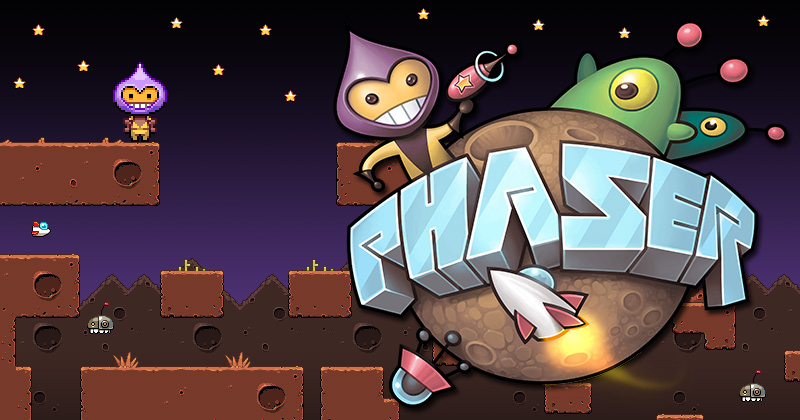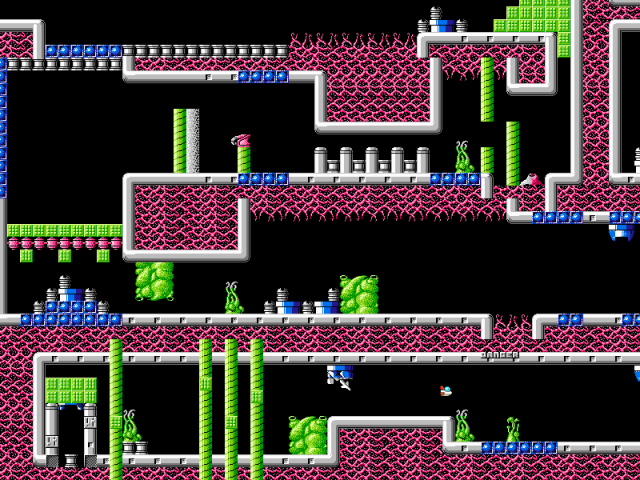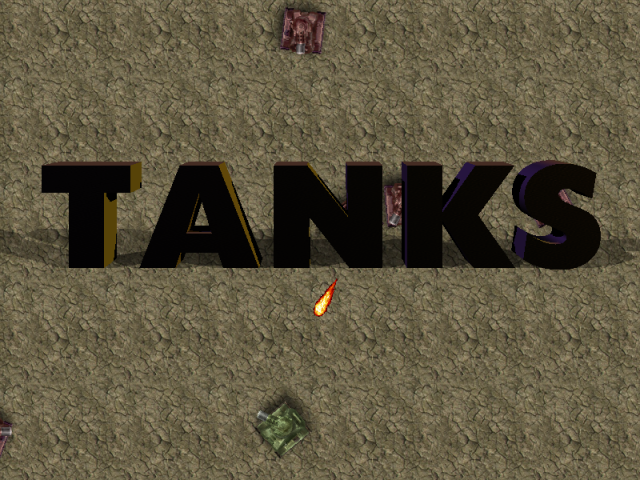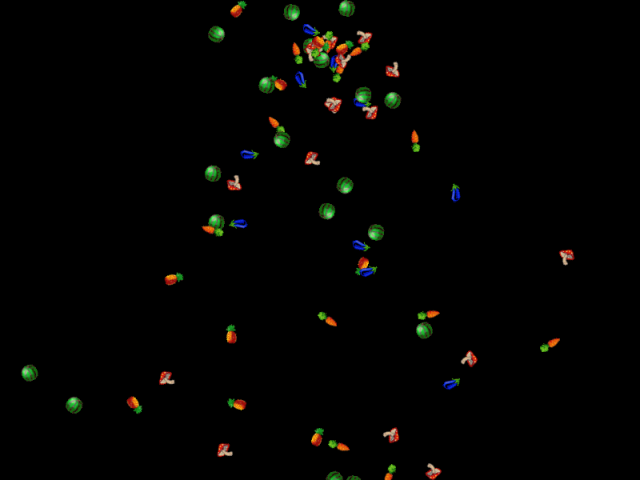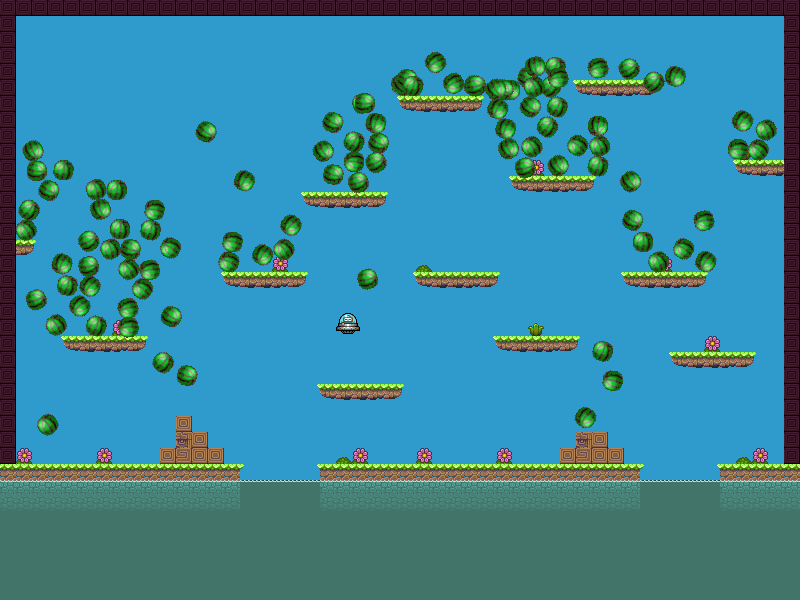Phaser is a fast, free and fun open source game framework for making desktop and mobile browser HTML5 games. It uses Pixi.js internally for fast 2D Canvas and WebGL rendering.
Version: 1.1.6 "Shienar" - Released: 24th February 2014
By Richard Davey, Photon Storm
- View the Official Website
- Follow on Twitter
- Join the Forum
- Try out 220+ Phaser Examples
- Read the documentation online
Subscribe to our new Phaser Newsletter. We'll email you when new versions are released as well as send you our regular Phaser game making magazine.
1.1.6 is the final point release before Phaser 2.0 is released this March.
As you may know we had planned to release 1.1.4 at the end of 2013. For various reasons this didn't quite happen, but we're happy to announce it's finally out! There have been some dramatic changes internally, and if you make use of either the physics systems or tilemaps then you are going to need to update your code. Hopefully only a little bit, but there have been a number of core API changes which we detail below. There are also a host of new features, the headliners being:
- New Physics system. Uses SAT.js internally so physics bodies can now be rectangles, circles or polygons and support rotation.
- New Tilemap system. Brand new collision system for tiles, much more advanced layer handling, tile properties, multiple tilesets of layer and more.
- New Timer. This handy new class lets you create timed events easily.
- Your Game can now be configured from an external configuration object.
- Over 150 new features and updates and over 30 reported bug fixes.
This release also brings the TypeScript definitions file as bang up to date as possible. There are still a few areas that need looking at, but with your help hopefully we can iron those final few bits out and have a 100% accruate defs file on offer.
There is a new Contributors Guide which we'd urge you to follow if you wish to help with Phaser development, and we've updated the doc files and added lots more details into key areas. The Examples have grown too! Now over 220 of them including several great ones from the community.
We're going to settle on this build for a short while as we do some quick iteration bug fixing, so expect to see some small point releases very soon that do nothing but address any issues you may find. But in parallel to this we are also now rebuilding our core to bring it in-line with the latest version of Pixi.js, which has had some dramatic changes under the hood, changes will impact a lot of what Phaser does internally. But the changes are all for the better and once we upgrade Pixi you'll have a significantly faster renderer and a smaller codebase too, as we do away with stacks of linked list code :)
As always we offer a heart-felt "Thank you!" to everyone who has encouraged us along the way. To those of you who worked with Phaser during its various incarnations. The number of games being released that were made with Phaser is staggering and we really love to see how you use it! You are our heroes. It's your kind words and enthusiasm that has keeps us going.
Phaser is everything we ever wanted from an HTML5 game framework. It powers all of our client work in build today and remains our single most important product, and we've still only just scratched the surface of what we have planned for it.
Originally we were going to release Phaser 1.2 next, however after working solidly on it for a while we realise it's such a large and API breaking/changing update that we need to step-up the version to 2.0 to avoid any possible confusion. Progress has been rapid and we'd love for you to help test it. You'll notice a new 1.2 branch on github - we're going to keep the branch name as 1.2 as we're nearly at the end of development now, but please understand this is what will actually be the 2.0 release.
Please help test out 1.2/2.0 as much as you can. It features the brand new Pixi 1.5 internally as well as nearly complete integration with p2.js for all physics (dropping ArcadePhysics entirely). New versions are being pushed several times a day, so be sure to update and pull often. Don't expect to just run old games right under it yet, but please do check out the new tests, experiment and poke it around as much as you can - thank you!
We have a new Getting Started Guide which covers all you need to begin developing games with Phaser. From setting up a web server to picking an IDE. If you're new to HTML5 game development, or are coming from another language like AS3, then we recommend starting there.
There is a comprehensive How to Learn Phaser guide on the GameDevTuts+ site which is a great place to learn where to find tutorials, examples and support.
There is also an un-official Getting Started Guide.
Version 1.1.6 - "Shienar" - 24th February 2014 (amended 21:34 GMT)
New Examples:
- Added lovely new little mini golf game by jpcloud.
Updates:
- Loader can now load JSON files natively (thanks lucas)
- TilemapParser now errors if the tileset isn't the right size
Bug Fixes:
- Physics.processRebound now takes Body direction into account, helps with body-body collision bounces (thanks ram64)
- Fixed the Example / physics / mass velocity test.
- Updated Physics.Body.applyDamping so that velocity is reduced down to zero properly (thanks caezs)
- ArcadePhysics.collideSpriteVsTilemapLayer wouldn't call the process or collide callbacks if only 1 tile was involved in the check (thanks mandarinx)
- Lots of documentation fixes (thanks nhowell)
- Fix for PixiPatch so it renders masks again (thanks georgios)
- Modified ArcadePhysics.intersects so it returns a value as well as asigns (thanks bunnyhero)
- Lots of TypeScript defs fixes (thanks clark)
See the full Change Log for all the 1.1.4 and 1.1.5 updates and API changes (as there were a lot of them!)
You can view the Change Log for all previous versions at https://github.com/photonstorm/phaser/changelog.md
We provide a fully compiled version of Phaser in the build directory, in both plain and minified formats.
We also provide a Grunt script that will build Phaser from source along with all the examples.
Run grunt in the phaser folder for a list of command-line options.
You can 
If you use bowser you can install phaser with:
bower install phaser
Nice and easy :)
Thanks to a community member Phaser is now available on CDNJS. You can include the following in your html:
http://cdnjs.cloudflare.com/ajax/libs/phaser/1.1.5/phaser.min.js
Or if you prefer you can leave the protocol off, so it works via http and https:
//cdnjs.cloudflare.com/ajax/libs/phaser/1.1.5/phaser.min.js
Games created with Phaser require a modern web browser that supports the canvas tag. This includes Internet Explorer 9+, Firefox, Chrome, Safari and Opera. It also works on mobile web browsers including stock Android 2.x browser and above and iOS5 Mobile Safari and above.
For developing with Phaser you can use either a plain-vanilla JavaScript approach or TypeScript using the provided TypeScript definitions file. We made no assumptions about how you like to code your games, and were careful not to impose any form of class/inheritance/structure upon you.
Phaser is 321 KB minified and 72 KB gzipped.
Phaser comes with an ever growing suite of Examples. Personally I feel that we learn better by looking at small refined code examples, so we created over 200 of them and create new ones to test every new feature added. Inside the examples folder you'll find the current set. If you write a particularly good example then please send it to us.
The examples need to be run through a local web server (in order to avoid file access permission errors from your browser). You can use your own web server, or start the included web server using grunt.
Using a locally installed web server browse to the examples folder:
examples/index.html
Alternatively in order to start the included web server, after you've cloned the repo, run npm install to install all dependencies, then grunt connect to start a local server. After running this command you should be able to access your local webserver at http://127.0.0.1:8000. Then browse to the examples folder: http://127.0.0.1:8000/examples/index.html
There is a new 'Side View' example viewer as well. This loads all the examples into a left-hand frame for faster navigation.
You can also browse all Phaser Examples online.
WebGL & Canvas
Phaser uses both a Canvas and WebGL renderer internally and can automatically swap between them based on browser support. This allows for lightning fast rendering across Desktop and Mobile. When running under WebGL Phaser now supports shaders, allowing for some incredible in-game effects. Phaser uses and contributes towards the excellent Pixi.js library for rendering.
Preloader
We've made the loading of assets as simple as one line of code. Images, Sounds, Sprite Sheets, Tilemaps, JSON data, XML and JavaScrtip files - all parsed and handled automatically, ready for use in game and stored in a global Cache for Sprites to share.
Physics
Phaser ships with our Arcade Physics system. A SAT based collision and physics library perfect for low-powered devices and fast collision response. Control velocity, acceleration, bounce, damping and full collision and separation control. As of version 1.1.4 we now support rectangles, circles and polygon collision with full rotation.
Sprites
Sprites are the life-blood of your game. Position them, tween them, rotate them, scale them, animate them, collide them, paint them onto custom textures and so much more! Sprites also have full Input support: click them, touch them, drag them around, snap them - even pixel perfect click detection if needed.
Groups
Group bundles of Sprites together for easy pooling and recycling, avoiding constant object creation. Groups can also be collided: for example a "Bullets" group checking for collision against the "Aliens" group, with a custom collision callback to handle the outcome.
Animation
Phaser supports classic Sprite Sheets with a fixed frame size, Texture Packer and Flash CS6/CC JSON files (both Hash and Array formats) and Starling XML files. All of these can be used to easily create animation for Sprites.
Particles
An Arcade Particle system is built-in, which allows you to create fun particle effects easily. Create explosions or constant streams for effects like rain or fire. Or attach the Emitter to a Sprite for a jet trail.
Camera
Phaser has a built-in Game World. Objects can be placed anywhere within the world and you've got access to a powerful Camera to look into that world. Pan around and follow Sprites with ease.
Input
Talk to a Phaser.Pointer and it doesn't matter if the input came from a touch-screen or mouse, it can even change mid-game without dropping a beat. Multi-touch, Mouse, Keyboard and lots of useful functions allow you to code custom gesture recognition.
Sound
Phaser supports both Web Audio and legacy HTML Audio. It automatically handles mobile device locking, easy Audio Sprite creation, looping, streaming and volume. We know how much of a pain dealing with audio on mobile is, so we did our best to resolve that!
Tilemaps
Phaser can load, render and collide with a tilemap with just a couple of lines of code. We support CSV and Tiled map data formats with multiple tile layers. There are lots of powerful tile manipulation functions: swap tiles, replace them, delete them, add them and update the map in realtime.
Device Scaling
Phaser has a built-in Scale Manager which allows you to scale your game to fit any size screen. Control aspect ratios, minimum and maximum scales and full-screen support.
Plugin system
We are trying hard to keep the core of Phaser limited to only essential classes, so we built a smart Plugin system to handle everything else. Create your own plugins easily and share them with the community.
Mobile Browser
Phaser was built specifically for Mobile web browsers. Of course it works blazingly fast on Desktop too, but unlike lots of frameworks mobile was our main focus. If it doesn't perform well on mobile then we don't add it into the Core.
Developer Support
We use Phaser every day on our many client projects. As a result it's constantly evolving and improving and we jump on bugs and pull requests quickly. This is a living, breathing framework maintained by a commercial company with custom feature development and support packages available. We live and breathe HTML5 games.
Battle Tested
Although Phaser 1.0 is a brand new release it is born from years of experience building some of the biggest mobile HTML5 games out there. We're not saying it is 100% bug free, but we use it for our client work every day, so issues get resolved fast and we stay on-top of the changing browser landscape.
Here is what's on our road map for the coming months:
March 2014 will see Phaser 2.0 ("Aes Sedai") Released. The new features and fixes already implemented are vast, and include:
- Update to Pixi 1.5 - this newly released build has lots of internal changes and new features we want to take advantage of.
- Integration of the p2.js physics system and removal of the old ArcadePhysics. Full body dynamics are go!
- Better CocoonJS packaging features (screencanvas, audio checks, etc)
- Fixed width bitmap font support, plus enhanced Bitmap font rendering.
- Significantly optimised render and update loops. We're seeing significant fps improvements across the board.
- Literally hundreds of bug fixes across all core classes.
Beyond version 2.0 here are some of the features planned for the future:
Version 2.1 ("Shienar")
- Enhance the State Management, so you can perform non-destructive State swaps and persistence.
- A more advanced Particle system, one that can render to a single canvas (rather than spawn hundreds of Sprites), more advanced effects, etc.
- Ability to control DOM elements from the core game and layer them into the game.
- Touch Gestures.
- Support for parallel asset loading.
Version 2.2 ("Tarabon")
- Comprehensive testing across Firefox OS devices, CocoonJS and Ejecta.
- Integration with third party services like Google Play Game Services and Amazon JS SDK.
- Flash CC HTML5 export integration.
- Massively enhance the audio side of Phaser. Take more advantage of Web Audio: echo effects, positional sound, etc.
Beyond version 2.2
- Test out packaging with Node-webkit.
- Game parameters stored in Google Docs.
- Look at HiDPI Canvas settings.
- Multiple Camera support.
- DragonBones support.
We now have a full Contributors Guide which goes into the process in more detail, but here are the headlines:
-
If you find a bug then please report it on GitHub Issues or our Support Forum.
-
If you have a feature request, or have written a game or demo that shows Phaser in use, then please get in touch. We'd love to hear from you! Either post to our forum or email: rich@photonstorm.com
-
If you issue a Pull Request for Phaser, please only do so againt the
devbranch and not against themasterbranch. -
Before submitting a Pull Request please run your code through JSHint to check for stylistic or formatting errors. To use JSHint, first install it by running
npm install jshint, then test your code by runningjshint src. This isn't a strict requirement and we are happy to receive Pull Requests that haven't been JSHinted, so don't let it put you off contributing, but do know that we'll reformat your source before going live with it.
Please add them to the Issue Tracker with as much info as possible, especially source code demonstrating the issue.
"Being negative is not how we make progress" - Larry Page, Google
Phaser is released under the MIT License.
